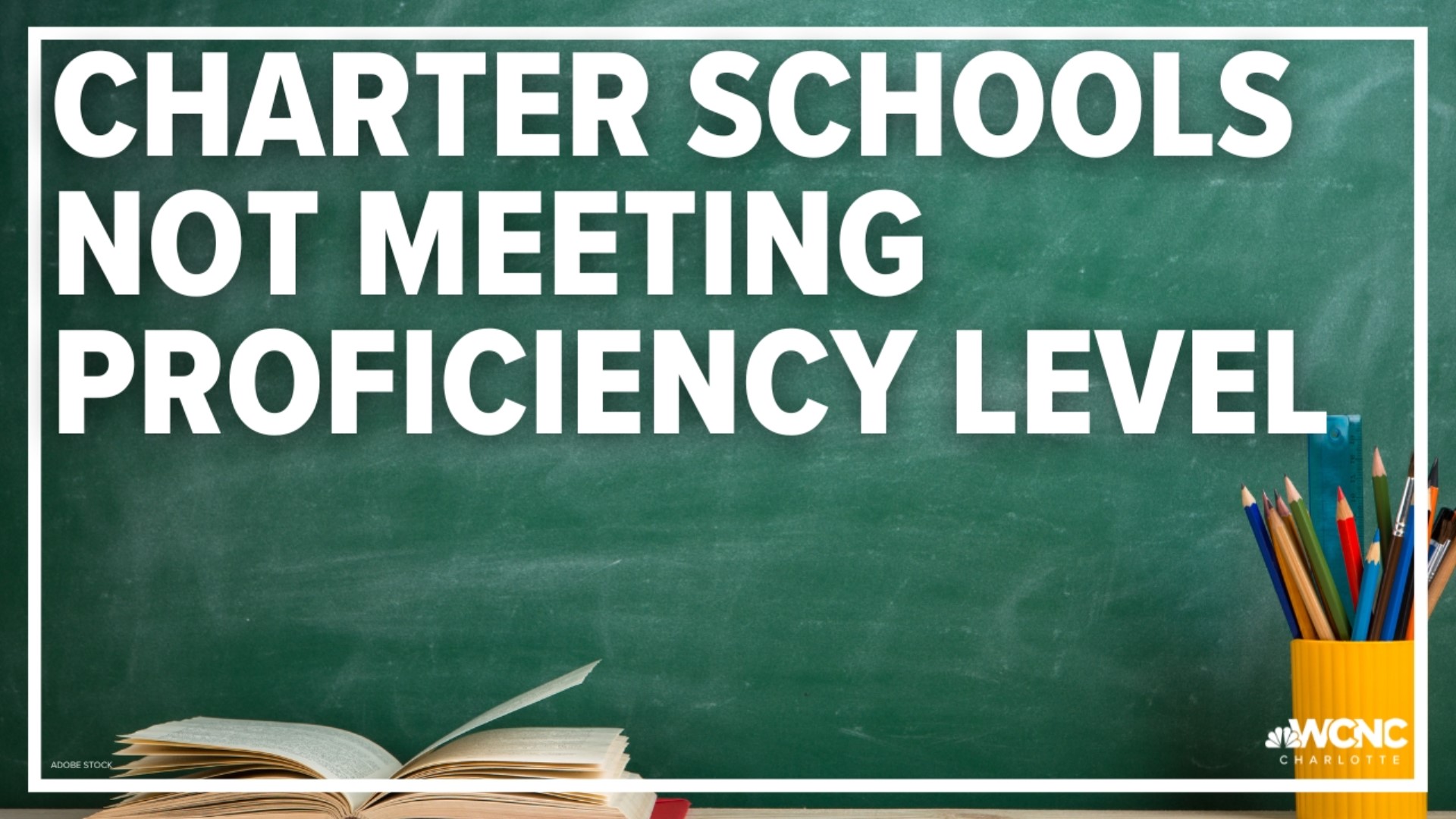CHARLOTTE, N.C. — The number of public charter schools opening in North Carolina continues to grow as parents decide traditional public schools aren’t the right fit.
This is especially true for children of color.
WCNC Charlotte looked at data from three Charlotte-area charter schools. They include Lake Norman Charter, Concord Lake Steam Academy and Movement Charter School.
Lake Norman Charter serves students in K-12, Concord Lake STEAM Academy serves K-8 and Movement Charter Schools serves K-6.
We compared the public charters to Union County Public Schools, Charlotte-Mecklenburg Schools, and Gaston County Schools.
When looking at grade level proficiency, like public schools, charter schools had mixed results for all students.
Data revealed when it comes to Black and Hispanic students being grade-level proficient, charter schools we compared saw better results than the traditional public schools.
“The work that we're doing is about the greater educational gap," Jenika Mullen, Movement School Superintendent said. "The fact that children who are Black and brown across our country are being underserved in education in one of the places."
Movement Charter Schools, like many other public charters, were created to fill a gap in student achievement in some Charlotte area zip codes.
"We are very intentional around our mission to serve Black and brown children and to serve communities in urban and urban communities because we understand that the work that we are doing is equity work," Mullen said.
On its state application to open one of its schools, Movement school leaders say their educational plan is designed to fit the “unique needs of the economically disadvantaged, limited English proficiency, ethnic minority, and refugee students it serves.”
"Regardless of what they look like, where they live in their circumstances, they still will perform exceptionally well on all their assessments and standards," Kenneth Gorham, the Movement middle school principal, said.
The number of Black and Hispanic students attending charter schools has increased in North Carolina since 2005, according to data from the National Alliance of Public Charter Schools and the Department of Education.
“At first, he struggled, but now... he's where he needs to be,” Moya Montgomery, a Movement school parent, said.
Her son previously went to CMS schools. Montgomery said her son’s progress and test scores prove she made the right decision.
WCNC Charlotte compared state data for all North Carolina Schools versus the state’s charter schools.
According to North Carolina data, 33.4% of Black students state-wide are grade-level proficient.
Data showed that 189 charter schools had data available for student proficiency in all subjects for Black students. WCNC Charlotte found that 115 of the schools scored above the North Carolina State average or 60% of Charter Schools.
Data showed that 187 charter schools had data available for student proficiency in all subjects for Hispanic students. WCNC Charlotte found that 129 of the schools scored above the North Carolina State average or 68% of Charter Schools.
Data showed that 203 charter schools had data available for student proficiency in all subjects for all students. WCNC Charlotte found that 113 of the schools scored above the North Carolina State average or 55% of Charter Schools.
Comparing public and charter school scores is not completely apples to apples. Charter schools, unlike traditional public schools, are not governed by elected officials. Also unlike traditional public schools, they can be managed by for-profit companies.
There is also a difference in program flexibility, pay scale grades for teachers, and funding sources for some public charter schools.
When looking at proficiency rates for Black and Hispanic Students statewide, at the top 50 schools in North Carolina with the highest proficiency rates for Black and Hispanic students, traditional public schools accounted for the majority.
Contact Shamarria Morrison at smorrison@wcnc.com and follow her on Facebook, Twitter and Instagram.

